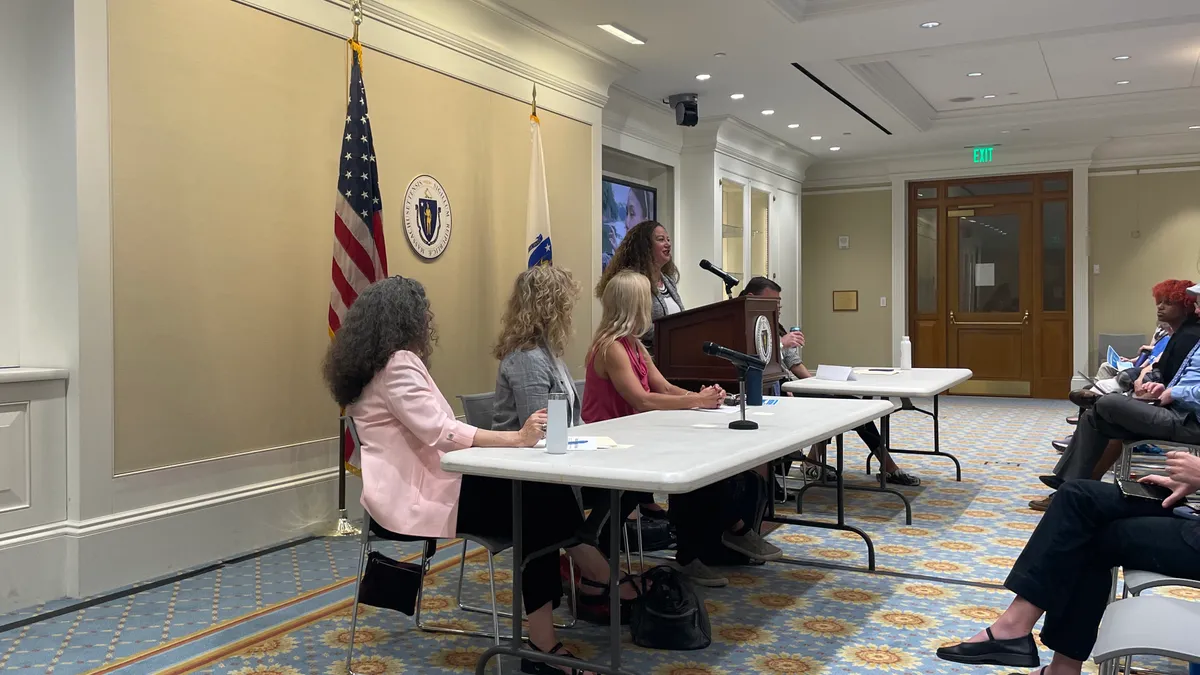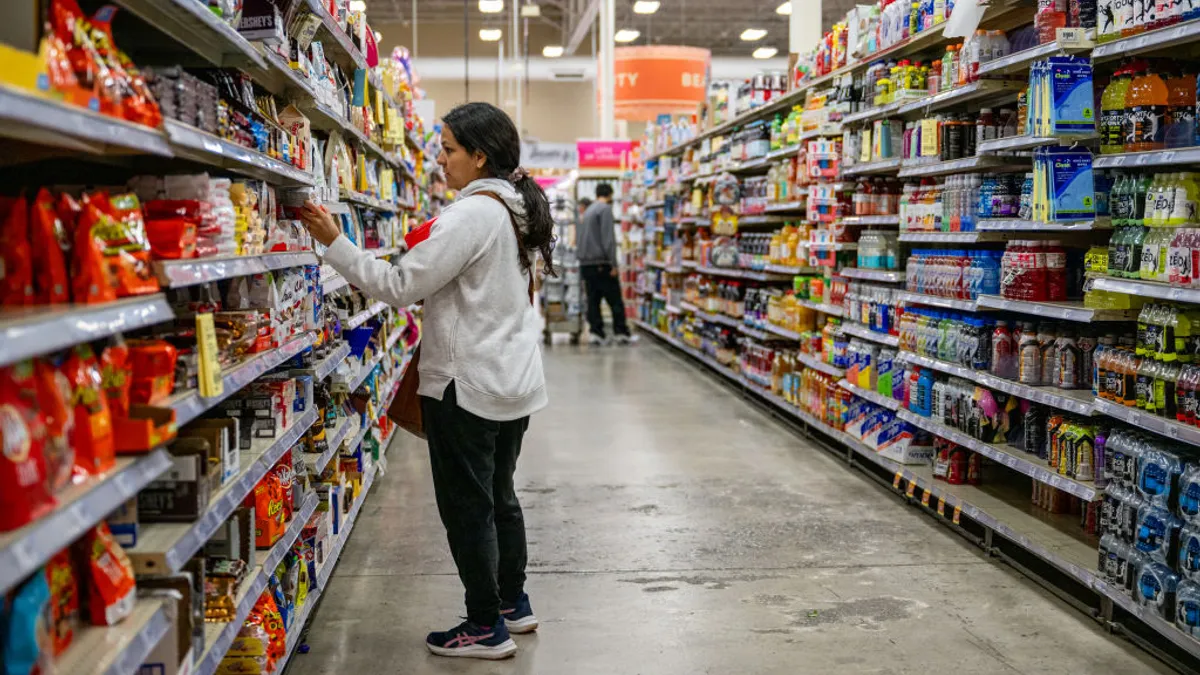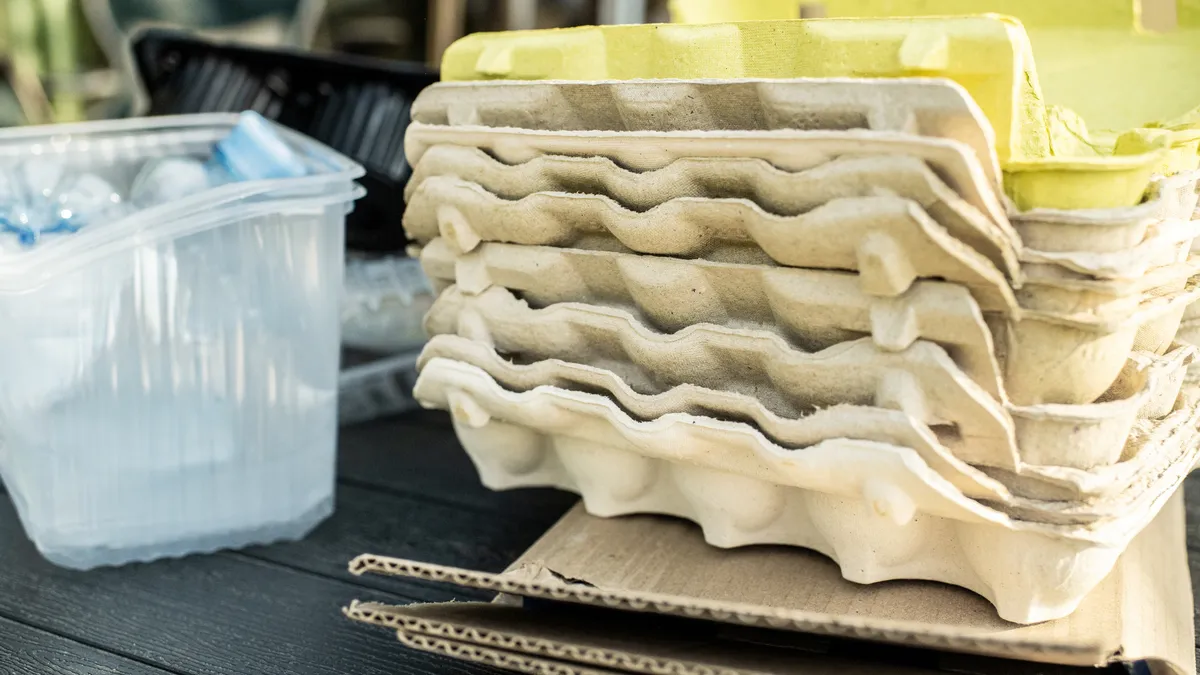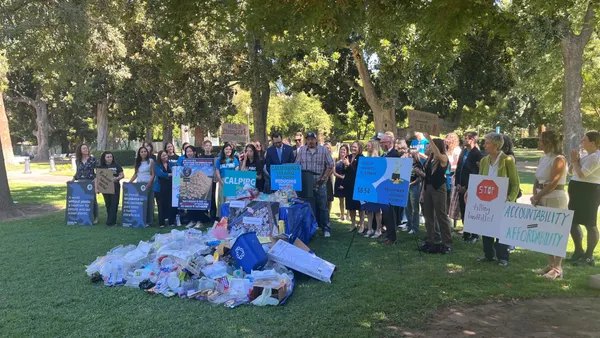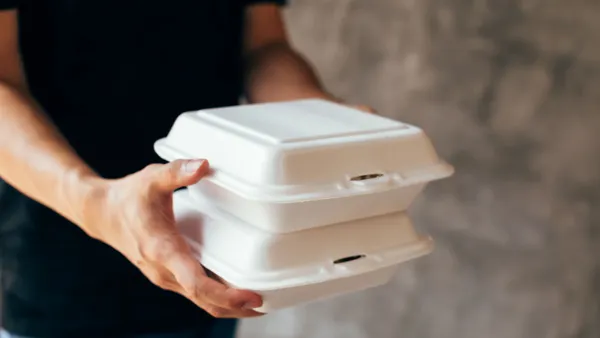Dive Brief:
- The Massachusetts Senate has passed the Plastics Reduction Act, which calls for numerous measures including banning carry-out plastic bags and preventing restaurants from automatically giving out plastic utensils and straws. It also calls for creating a commission to explore EPR for packaging and other items.
- The Senate is expected to debate a separate, wide-ranging climate bill on Tuesday that now includes a proposal to update Massachusetts’ bottle bill. The provision calls to increase deposit values to 10 cents, increase handling fees for retailers and redemption centers, and include more types of beverages in the program.
- On plastics, a large portion of Massachusetts municipalities already regulate plastic bags, a Senate release noted. A state law would standardize those approaches. The legislative session runs through July 31. “There’s a lot of legislation to be dealt with, and we really hope this is on the priority list for the House,” said Janet Domenitz, executive director at MASSPIRG.
Dive Insight:
The Massachusetts Senate sees the plastics and climate bills as a package meant to help the state achieve its net zero emissions by 2050 goals and “drastically” reduce plastic waste.
“The Plastics Reduction Act will prevent billions of single-use plastic bags, bottles, cutlery, and wipes from clogging up our environment, pipes, and landfills each year. This is a major win for our climate, our wildlife, and our health,” said Sen. Rebecca Rausch, Senate chair of the Joint Committee on Environment, in a statement following its passage.
The plastics reduction bill calls for numerous efforts to reduce virgin plastic use, a move supporters say is the most effective way to divert plastic waste from landfills. S.2830 would prohibit carry-out plastic bags at retail stores and require stores to charge 10 cents for recycled paper bags – half of which would go toward supporting environmental protection measures, via a Plastics Environmental Protection Fund, according to a Senate release.
The legislative push follows Democratic Gov. Maura Healey signing an executive order last year blocking state executive offices and agencies from buying single-use plastic bottles – a change estimated to avoid 100,000 fewer bottles per year. The bill would codify this, with state agencies not allowed to procure single-use plastic bottles or 21 fluid ounces or less.
The bill also calls for developing a “special legislative commission” meant to create EPR recommendations for the commonwealth. The bill calls for a 12-member group with members representing waste haulers or MRFs, packaging producers or retailers, food producers, environmental justice organizations, state agencies and others. The plan, due by March 1, 2026, would need to include recommendations on specific extended producer responsibility goals and strategies, cost system and producer payment recommendations, costs for residential curbside collection or transfer station operations, and other details.
The EPR commission provision would follow Maryland and Illinois, which recently passed their own EPR study bills.
Environmental groups praised the bill’s advancement.
“Cutting down on plastics is a necessary step toward achieving our state climate goals and creating a more sustainable home for future generations of Massachusetts residents. This is an important and vital step in plastic reduction, and Sierra Club Massachusetts encourages the Massachusetts House to pass this bill,” said Sierra Club Massachusetts State Political Director Jess Nahigian in a statement.
According to the Sierra Club, 30 Massachusetts senators also rejected an amendment that would have made the bill’s required fee on recycled paper bags optional for retailers.
“It's time Massachusetts made a bigger commitment to tackle the plastic pollution crisis in our state. We applaud the Massachusetts Senate for passing S. 2830,” said Nancy Downes, field campaigns manager for Oceana in Massachusetts, in a statement. “We must stop the problem at its source by reducing the amount of single-use plastic produced and moving to reuse and refill systems. We call on the House to pass this much-needed bill.”
Meanwhile, the Senate will soon debate a sweeping climate bill that includes numerous proposals meant to speed up permitting for solar, wind, and other “clean energy” infrastructure, as well as phasing out a natural gas infrastructure replacement program. Updating the state’s bottle bill is another provision of the bill.
The proposal builds off previously introduced bills calling for modernizing Massachusetts’ bottle bill. The version included in the climate bill would expand the program to include all metal, glass and plastic beverage containers except those used for milk, formula and medicines, and increase deposits from five to 10 cents. It would add containers up to 3.79 liters, but exclude cartons, pouches and aseptic cartons. Containers under 150 mL not containing alcohol (for example, for an energy shot) are also excluded.
Redemption centers would receive a handling fee of 4 cents, up from 3.75 cents, while retailers would get 3.25 cents, up from 2.75 cents. It also calls for a study of return and refill systems in Massachusetts, among other updates.
State Sen. Cynthia Stone Creem, who led the amendment adding the bottle bill provision in the climate bill, also sponsors a similar bottle bill expansion in the Senate.
The bill was meant to be heard on Friday, but Senate Republicans delayed debate after saying they needed more time to review the long, complex bill. The legislation is now set to be considered on Tuesday, the Boston Herald reported.
Kirstie Pecci, executive director of Just Zero, said proponents are “very hopeful about passing the modernized bottle bill in Massachusetts this session.”
Modernizing the bottle bill could help save municipalities between $26 million and $36 million a year on waste and recycling costs by diverting more kinds of containers from disposal and reducing litter, Just Zero estimates. “From a climate perspective, it makes sense for [the bottle bill update] to be included,” she said.
The state House is expected to introduce its own version of the climate bill as early as this week, she said. It’s unclear how similar it could look to the Senate’s version or whether a bottle bill update would be included, she said.




